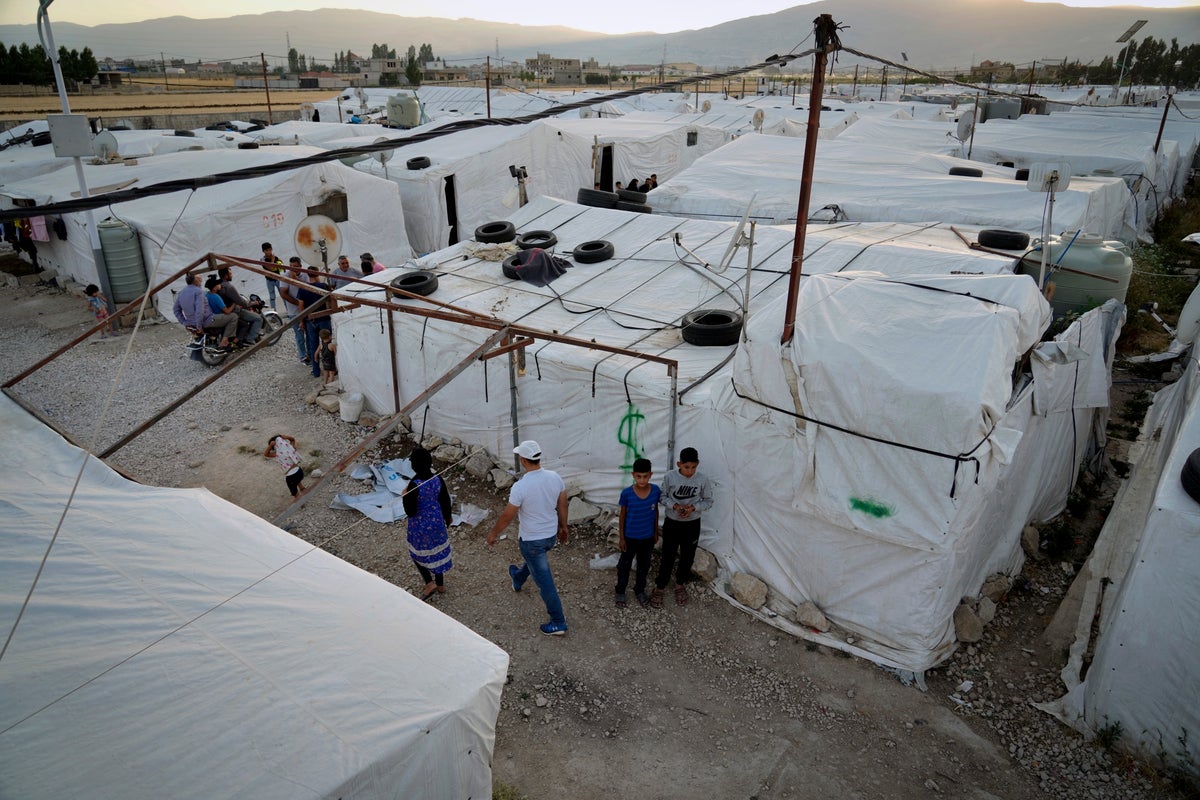
Lebanon will start sending Syrian refugees back home “in batches” next week, Lebanese president Michel Aoun announced on Wednesday, a move rights groups have said is “incredibly alarming” as Syria remains unsafe.
An estimated one million Syrian refugees live in Lebanon, which has the highest number of refugees per capita in the world.
According to the United Nations, over 90 per cent now live in extreme poverty, and cannot afford food or clothes.
Conditions have only worsened, and tensions have flared with Lebanese communities, as the country plunged into one of the worst economic crises in modern history. Lebanon’s currency has lost more than 95 per cent of its value, sending prices soaring and forcing three-quarters of the total population below the poverty line.
On Wednesday, the president’s office announced that starting next week displaced Syrians will be returned home. It follows a statement in September that those who wish to return to Syria can do so by registering through their programme.
Rafic Chlala, an advisor to Mr Aoun, told The Independent that the returns would be “voluntary” and organised by the Social Affairs Ministry as well as General Security.
“The process will be through batches after approval by the Syrian government,” he added.

The Independent reached out to the Social Affairs Ministry for clarification on the selection process but received no reply.
In July, Lebanon’s minister for displaced people, Issam Charafeddine, told the Associated Press he would seek to return some 15,000 refugees to Syria each month, on the grounds that he claimed that Syria had become largely safe after more than a decade of war.
Lebanon had already started a return programme back in 2018 but halted it due to the pandemic.
UNHCR, the United Nations refugee agency, said it was “not facilitating or promoting the large-scale voluntary repatriation of refugees to Syria”.
“Nonetheless, thousands of refugees choose to exercise their right to return each year,” Lisa Abou Khaled, a UNHCR spokesperson, said.
“UNHCR supports and calls for respect of refugees’ fundamental human right to freely and voluntarily return to their country of origin at a time of their choosing,” she added.
It is understood that UNHCR is involved in the process as part of its protection function, and therefore conducts interviews prior to voluntary repatriation and is present during the movement of people.
[It] is incredibly alarming given the continued abuses against people who return to Syria— Aya Mazjoub, Human Rights Watch
But the news has ignited serious concerns about the security of those who decide to go.
Aya Majzoub, at Human Rights Watch, said that even if families decide to return themselves many are at risk of torture and being vanished by the regime of Syrian president Bashar Al-Assad.
“The announcement is incredibly alarming given the continued abuses against people who return to Syria at the hands of the Syrian government and its affiliated militias,” she told The Independent.
“Syria is not safe for returnees. We have documented multiple cases of abuses against people who returned from Lebanon and Jordan including arrests, detention, enforced disappearance and torture.”
Meanwhile she said the environment in Lebanon was “increasingly coercive” and so it was hard to determine just how voluntary the decision to leave the country was.
She said many felt pressure to leave due to the lack of legal residency for Syrian refugees, the rising hate speech against the refugee community, the difficulty in accessing health care and education as well as the arrests of Syrians at checkpoints.
The Syrian authorities have issued a sweeping amnesty for a range of crimes which says it includes those committed by Syrians who fled their country during the 11-year conflict.
They also said they have eased measures for those who have fled their compulsory military service, a major push factor for young men fleeing Syria, including to Lebanon.

But rights groups and diplomats have warned that those guarantees are not sufficient.
In its September report, the United Nations’ Syria commission said the country was still not safe for returnees.







